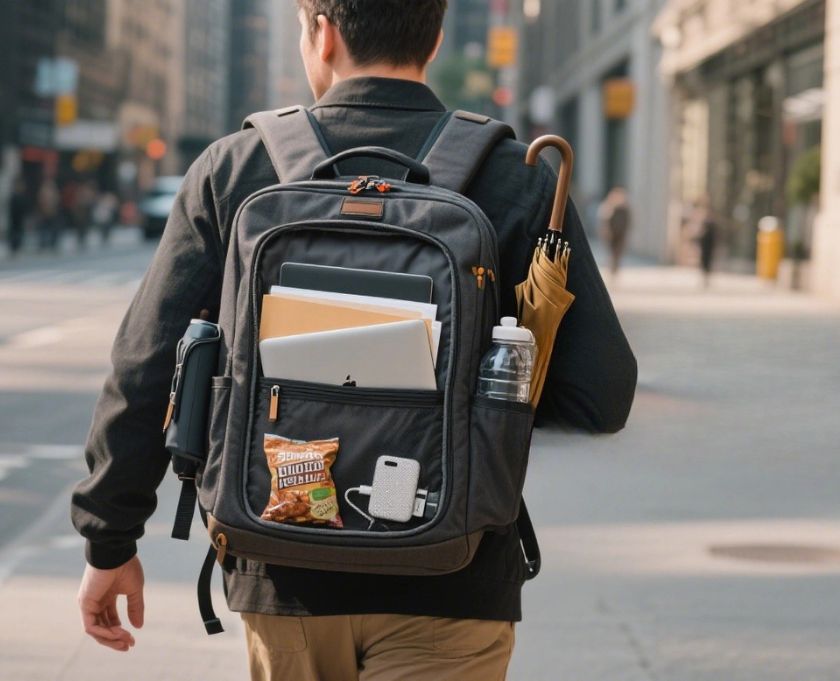Beautiful Plants For Your Interior

The right backpack size can make your daily commute more comfortable, organized, and efficient. Whether you’re cycling to work, taking the subway, or walking across town, your backpack needs to fit your essentials without weighing you down.
Understanding Backpack Capacity
What Does “L” Mean in Backpack Sizing?
The “L” stands for liters, a measurement of internal capacity. For example, a 20L backpack can hold about 20 liters of volume.
Volume vs. Usable Space
Some backpacks have thick padding or compartments that reduce usable space, so always check internal dimensions.
The 15L Backpack
Best Use Cases
- Short commutes with minimal items
- Carrying just a laptop, charger, and small lunch
Pros & Cons
Pros: Light, compact, easy to carry.
Cons: Limited storage for extra gear.
Example Items It Can Fit
- 13–15 inch laptop
- Small water bottle
- Notebook & pen
- Light jacket
The 20L Backpack
Best Use Cases
- Standard workdays
- Carrying tech gear and lunch
- Short trips after work
Pros & Cons
Pros: Balanced size, good for most commuters.
Cons: Can still feel small for gym gear.
Example Items It Can Fit
- 15–16 inch laptop
- Lunch box
- Medium water bottle
- Sweater or light jacket
- Notebook
The 30L Backpack
Best Use Cases
- Longer commutes
- Carrying gym gear + work items
- Weekend trips
Pros & Cons
Pros: Spacious, versatile, travel-friendly.
Cons: Heavier, bulkier for crowded transport.
Example Items It Can Fit
- 17-inch laptop
- Full change of clothes
- Gym shoes
- Lunch + snacks
- Headphones, books
Side-by-Side Comparison Table
| Size | Best For | Fits Laptop Size | Extra Gear Space | Comfort Level |
|---|---|---|---|---|
| 15L | Minimal daily carry | 13–15″ | Low | High |
| 20L | Standard commuting | 15–16″ | Medium | High |
| 30L | Commuting + gym/travel | 17″ | High | Medium |
How to Choose the Right Size for Your Commute
- Consider Your Daily Essentials: Match capacity to what you carry every day.
- Think About Comfort: Larger bags can feel heavy over time.
- Factor in Weather: Bigger bags can store rain gear and extra layers.
Tips for Maximizing Backpack Space
- Use packing cubes or organizers.
- Keep heavy items close to your back.
- Avoid overpacking to maintain comfort.
Conclusion: Size is a Personal Choice
The best urban commuter backpack size depends on your lifestyle. Minimalists might love 15L, while all-in-one packers may need 30L. Most commuters, however, find 20L to be the sweet spot.
FAQs
1. Is 15L enough for commuting?
Yes, if you carry minimal items.
2. Can a 20L backpack hold gym clothes?
It can, but space may be tight.
3. Is 30L too big for daily commuting?
It’s fine if you carry a lot, but it can feel bulky.
4. Which size is most popular?
20L is the most common commuter size.
5. Does backpack shape affect capacity?
Yes, tall and narrow designs can hold less than wide ones with the same volume.
[…] work and commuting, the ideal backpack size is 20–30 liters. This depends on what you need to carry. Smaller backpacks suit minimalist commuters. Larger ones […]